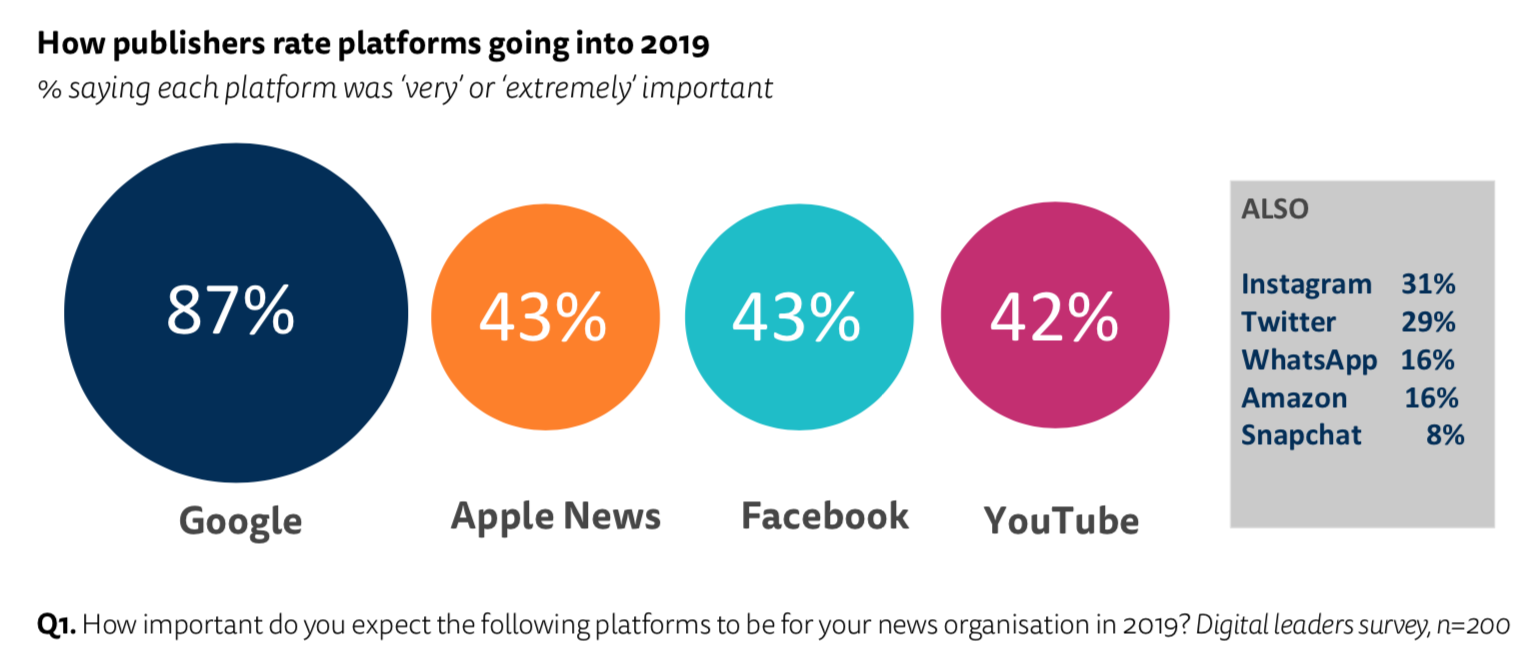
Every December, Nieman Lab asks media folks to predict what they think will happen in the new year — resulting in our annual predictions package, with more than 200 entries this year. (You can read them all individually, of course, or you can read our predictions playlists.)
And then, if you want still more, check out this new report from the Reuters Institute for the Study of Journalism, released Wednesday night. Nic Newman surveyed 200 digital leaders (editors-in-chief, CEOs and managing directors, heads of digital at traditional and digital-born publishers) from 29 countries to get a sense of the broad trends and things they’re thinking about for 2019. Some main themes:— All eyes on subscription. More than half of respondents (52 percent) said subscriptions and membership will be their “main” revenue focus in 2019, followed by display advertising (27 percent), with native advertising coming in at just eight percent and donations (separate from membership) at seven percent.
Publishers certainly aren’t abandoning advertising, though.

— Facebook falls out of favor. Eighty-seven percent of publishers said Google is “very” or “extremely” important for them in 2019.

Why Google? Well, after 2018, nobody wants to admit that they’re relying heavily on Facebook or on distributed content in general. “Our platform approach is increasingly focused on bringing people back to us,” one UK publisher said. “We aren’t interested in building communities on external platforms for the benefit of that platform.”
— Is help coming? Rasmus Kleis Nielsen was blunt in his Nieman Lab prediction: The journalism business in 2019 will be “a long, slow slog, with no one coming to the rescue.” Indeed, 29 percent of publisher respondents agree with him: They’re not expecting help from anyone this year. Others are more optimistic:

— Paywall fatigue. Rasmus Kleis Nielsen again: “Much of the news currently published online is simply not worth paying for. Some of it is hardly worth our fleeting attention, let alone hard-earned cash.” In 2019, how will readers react to a barrage of “please subscribe” pop-ups? Newman writes that “subscription barriers could end up annoying consumers further and giving people another reason to turn away from news,” predicting paywall blockers:
We’ll see growing adoption of “subscription blockers,” downloadable software or browser extensions that that get round metered paywalls by blocking the javascript that triggers them. Forcing users to login for any content is one way round this, but this will reduce fly-by users and the resulting advertising revenue.
The full report is here.